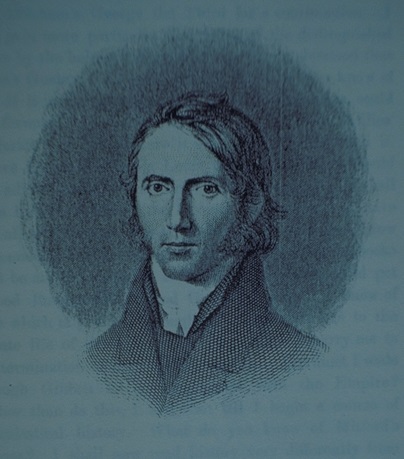
A very similar view is reflected in the writings of William Ellery Channing, Allston's longtime friend and brother of Allston's first wife, Ann. Ann died in 1815 in England, where Washington Allston, she, and Samuel F. B. Morse, Allston's painting student at that time, had been living since 1811. Especially see W E Channing's The True End of Life [sermons first published in 1873, thirty years after he died], On the Character and Writings of Milton [1826] and Evidences of Revealed Religion [1821].